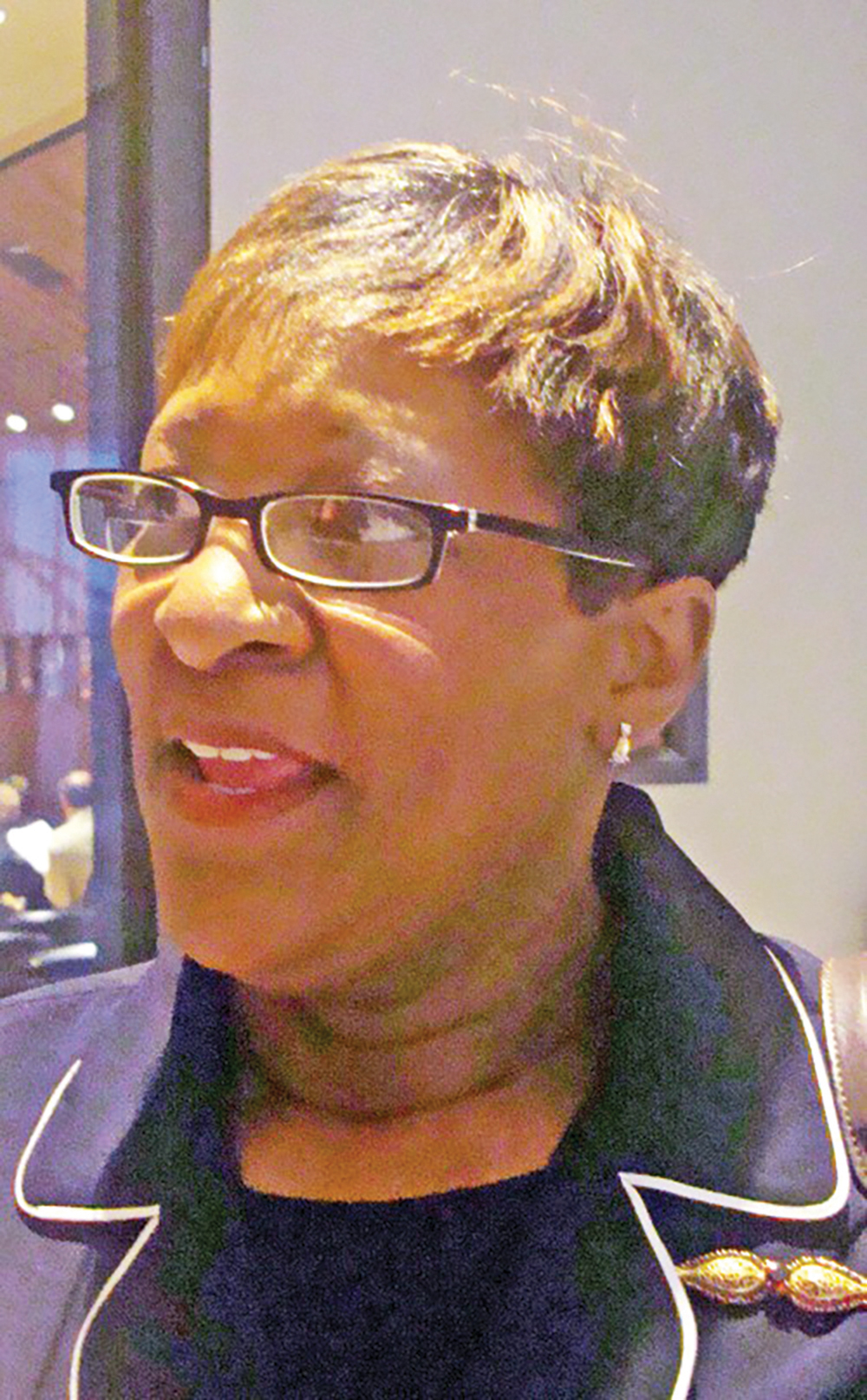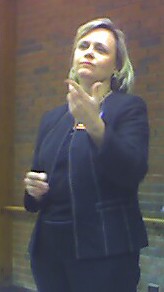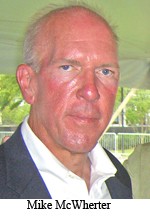There come times when you wonder why everyone isn’t a
political junkie. Last year’s nail-biting U.S. Senate race between winner Bob
Corker and (narrow) loser Harold Ford Jr. – climaxing with the now
famous Battle of Wilson Air, when the GOP’s Corker deftly out dueled Democrat
Ford at the latter’s ambush of a Corker press conference — was one such time.
Another, believe it or not, is this year’s Memphis mayoral
race, which — despite the opting out of one potential lead actor, Shelby
County Mayor A C Wharton, and the refusal of another, incumbent Memphis
mayor Willie Herenton, to play ensemble – has had its dramatic, as well
as its comedic, moments.
Much of the entertainment value has come, as expected, from
the scramble involving the three major contenders to Herenton – city
councilwoman Carol Chumney, former MLGW head Herman Morris, and
former Shelby County Commissioner John Willingham. We’ll get to that core
drama in a moment.
But besides this main plot, which some have called by the
shorthand initials A.B.H. (for “Anybody-but-Herenton”), there’s running
mini-drama involving the several supporting players in the 14-member mayoral
field. We can call that one A.G.H. – for “Ain’t Gonna Happen.”
For, if there is real doubt as to whether Willingham, whom
the polls have shown to be hovering in the low single digits, is delusional in
his hopes of winning, it’s a dead-level cinch that these others are. None of
them even blip the radar screen.
Which is not to say that they haven’t made their
contribution to the dialogue. Nor that they haven’t made for compelling theater
on those rare occasions when they’ve been admitted to a forum involving the Big
Three (as for the Big Unit himself, the incumbent mayor, fahgitaboutit!, he’s
made it clear he’s not about to show in tandem with the others).
Consider this piece of wisdom from Laura Davis Aaron,
delivered at the League of Women Voters’ omnium gatherum affair at the
Main Library on Poplar on Sunday:
Knowing what she was about to unleash, Aaron first issued
this full-disclosure caveat to the attending audience (fairly numerous, all
things considered): “I want you close your eyes for a minute. I wanted to be a
lawyer once, but they ran out of the courtroom.” Non sequitur or not, we got the
drift of that. Then came the moment she was preparing us for:
“God gave me a plan and a vison: “Dr. Aaron, you must put
senior citizens in The Pyramid!'” (Pause.) “And I said: ‘To do what?'”
Once again the voice of the Almighty: “‘Take what they’ve
got in their homes to the Pyramid. and you’re gonna have them run a flea
market in that Pyramid!'”
And that, mind you, was only the first of two instances of
divine intervention at Sunday’s forum. Aaron was followed minutes later by
fellow candidate Dewayne A. Jones, who proclaimed more modestly, “God
makes the leader. I am your David,” and promised at some point to bring
forth his own “vision of empowerment.” He may even have had it ready on Sunday,
but wisely decided to hold it in reserve after Aaron’s bombshell.
There were contributions of a more secular sort from the
candidate chorus on Sunday. Roosevelt Jamison, in particular, proved
himself something of a phrasemaker. At one point, the youthful-appearing
Jamison, a Desert Storm vet, said disarmingly to the crowd, “I know I don’t
look old, but I am old.”
And he certainly got his fellow also-rans on his side when
he complained that “the media isn’t playing with a full deck” – meaning that he
and the other unsung names on the mayoral ballot weren’t getting their proper
share of attention.
The line from Jamison that got the whole audience going,
though, was this zinger, in response to the issue of gang activity and what to
do about it: “”We need to stop the gangs on top!” — a clear reference to
the rascals in charge of the governmental and business status quo.
Jamison was not done. He went on to insist, “Our government
has corrupted us in our city,” designating as particular problems “welfare” and
“babies having babies.” He got murmurs of approval from the conservatives in the
audience when he said, “We need mens [sic] to stand up to be mens. Stop leaving
everything to our women!”
Then there was Randy Cagle, who embraced past
traditions as well, calling, among other things, for a return to corporal
punishment in the schools. As he pointed out, “I got busted a lot of times at
school, but I’m not dead.”
Businessman Cagle, who has made every forum so far to which
all mayoral candidates have been invited, obviously relished the attention.
Often Cagle was gently corralled by a hint from LWV moderator Danielle
Schonbaum that he was about to exceed his allotted time limit.
On one such occasion, he said the obvious: “I could go on
forever. I love it.”
As candid and direct as that remark of Cagle’s was in its
own right, it had the ancillary virtue of prompting a rare understatement from
the famously voluble Willingham. “I’m like Cagle,” said the former commissioner.
“I can talk to you for three hours.”
Three hours was not quite what Willingham and fellow
top-tier candidates Morris and Chumney enjoyed during Monday night’s prime-time
broadcast forum on News Channel 3, WREG-TV, but the three of them managed a
compelling hour.
Observers’ opinions differed afterward as to who came out
ahead in a format that culminated with direct exchanges between the candidates
themselves.
But there were several discoveries to be had by the
viewers, who learned, among other things, that Chumney has been endorsed by the
AFL-CIO (she mentioned the fact four, maybe five times) and that Willingham, who
would seem to be about as white as white can be (ditto for his supporters),
considers himself the exponent, first and foremost, of “my base in the black
community,” which he helpfully enumerated as being in the vicinity of 13,000
voters.
Cynics may dispute it all they want, but the former
commissioner made it clear several times in his opening statement and thereafter
that he thinks of himself as the candidate of black Memphians. Willingham also
made the claim that his commission race of 2002, which resulted in an upset
victory over then incumbent Morris Fair, had been but a trial run for the
two mayoral races he’s run since (three, counting one for county mayor last
year).
He had run back then, Willingham confided, “to get my name
out.”
Whatever.
More to the point, he certainly got his name out Monday
night, sparring with the other two candidates (and occasionally, lightly, with
moderators Claudia Barr and Richard Ransom) and discoursing on
several of his pet schemes, two of which – converting the Fairgrounds into a
mini-Olympic village for international competitions and reserving desk jobs in
the Memphis Police Department for returning vets of the Iraq war – were
distinctly original.
In WREG’s own post-debate viewer poll, Willingham was, in
fact, running a strong second to Chumney.
As for the councilwoman, she had boasted on air – as she
has every right to – that such scientific polls as have been taken all position
her at the lead of the mayoral pack or tied for it. That was the basis for her
no-thank-you answer to commentator Norm Brewer‘s first question, asking
all the candidates if they shouldn’t back out, making room for a single
consensus contender to take on Herenton, who remains a not-quite-prohibitive
favorite.
(No one else volunteered for self-sacrifice, either.)
Though occasionally lapsing into some repetitive-sounding
spin, Chumney certainly managed to seize her share of the spotlight and to get
out large chunks of her crime plan (also available on her Web site) and other
proposals.
Morris, too, had his moments, staking out his claim to be a
racial uniter and unflappably fending off his opponents’ attacks on his record
at MLGW (Chumney on the alleged V.I.P. list he’d kept while head of the utility
and Willingham on what he – but not Morris, still a true believer – saw as the
folly of investing in Memphis Networx).
With some logic, Morris could claim afterwards that the
others’ persistent questioning of him meant that they must have regarded him as
“the frontrunner.” He wishes.
The bottom line is that all three candidates handled
themselves well and did themselves no damage, as each continued to vie for the
right to be regarded as the main contender to Herenton.
To Be Continued, you may be sure.


 Shelbycountytn.gov
Shelbycountytn.gov  JB
JB  jb
jb  jb
jb 